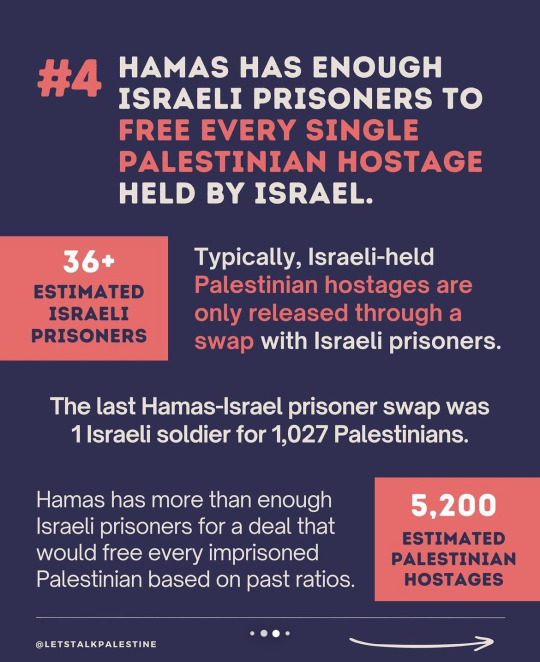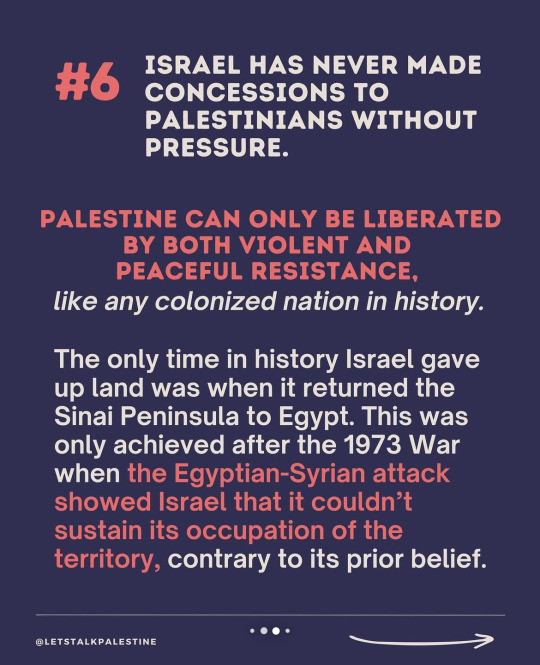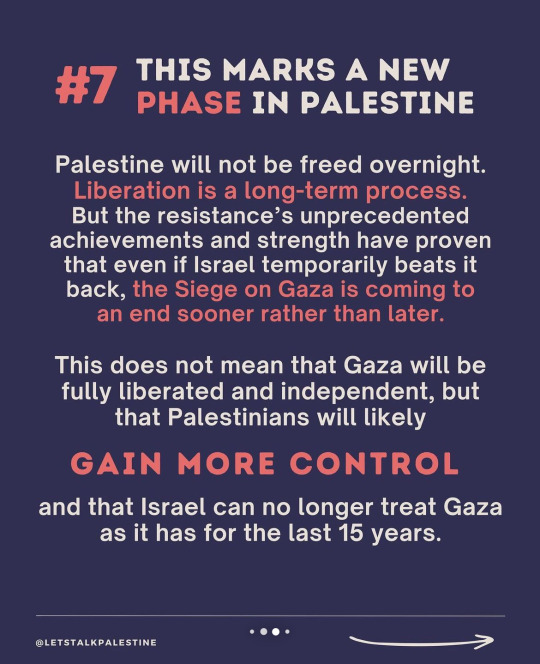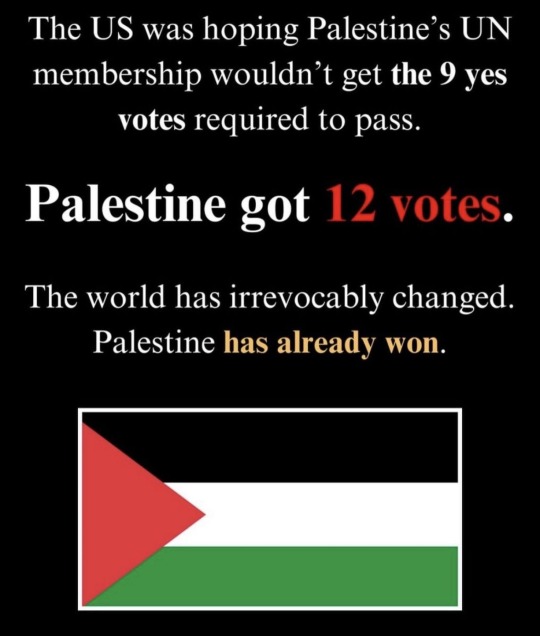#palestinian rejectionism
Link
For decades, many people, for good and bad, have been spreading the narrative that if only Israel would be a little more generous, and if only the Americans brokered a serious peace agreement, peace was within reach. For the bad, this stems from the desire to blame Israel for all world crimes. For the good, this is due to a sincere and genuine desire for peace, mixed with a lack of knowledge, or reluctance to know, or self-deception of those who struggle to reconcile the gap between beliefs and desires on the one hand and facts on the other.
This is not the place to review the details of historical rejectionism, starting from the 1937 Peel Commission’s partition offer, continuing with the 1947 UN partition plan, nor the three ‘No-s’ immediately after the Six-Day War in 1967. The current era is more important. The most important peace initiatives in recent decades have been those of Bill Clinton in 2000, Saudi Arabia in 2002, Ehud Olmert in 2008, and John Kerry and Barack Obama in 2014. On each occasion Palestinian rejectionism has stood on the issue of the ‘right of return’ of the Palestinian refugees.
THE CLINTON PARAMETERS
After the failure of Camp David Summit in the summer of 2000, Ehud Barak and Yasser Arafat asked Clinton to present a peace plan. It was indeed presented to the parties on 23 December 2000. The plan granted the Palestinians a state on about 95 per cent of the territories, division of Jerusalem and a solution to the refugee problem by an international fund, with a limited right of return, (at least in the original offer). After four days, the Israeli government decided to approve the parameters, presenting reservations that did not contradict the parameters themselves. Arafat came to Washington, and before leaving for the White House, he met with the Saudi Arabian ambassador, Bandar Bin Sultan, who informed him of the Arab countries’ consent and urged him to say yes to the parameters. ‘If you say no, it won’t be a tragedy,’ Bandar told him, ‘It would be a crime.’
Arafat committed both tragedy and crime. He said no. Bin Sultan repeated his version in in a lengthy interview with Al-Arabiya in 2020. Martin Indyk confirmed this version of events in a series of tweets immediately after that interview.
There is another narrative that says Bill Clinton, on page 944 of his book, My Life, wrote that Israel also refused his parameters. I went back to page 944. It uses these words: ‘The refusal of Arafat’s offer for my parameters, following Barak’s consent, was an error of historical proportions.’ In fact, Clinton’s testimony is unnecessary. The official response document of the Palestinian Authority states: ‘We cannot, however, accept an offer that secures neither the establishment of a viable Palestinian state nor the right of Palestinian refugees to return to their homes.’ It’s pretty clear. But various ‘commentators’ obfuscate the truth, aiming to create the impression that Israel did not say yes and the Palestinians did not say no.
#palestinian rejectionism#history#israeli arab conflict#israeli palestinian conflict#Peace process#two state solution
14 notes
·
View notes
Text

ID: Instagram post by @/letstalkpalestine. The slide reads: "Let's Talk: 8 things to know about what's happening in Palestine." End ID.

ID: "#1 This is possibly the largest ever Palestinian liberation operation in modern history. Never before have Palestinians succeeded in taking back so much of their land and breaking out of the segregated ghettoes in which Israel has concentrated them." End ID.

ID: "#2 This was an 'attack' [the word attack is striked through] response. Anyone would fight back after a decades-long process of colonization, after they have been turned into stateless refugees, expelled and concentrated in tiny ghettoes, imprisoned, or killed for daring to resist.
For 15 years Israel has besieged Gaza with snipers stationed all around it, drones occupying its skies 24/7, and navy patrols shooting at any fishermen who venture too deep.
If this happened to your city, wouldn't you fight back?" End ID.

ID: "#3 Palestinians didn't 'infiltrate israel." Most Gazans are not actually from Gaza.
70% of them are from the same surrounding lands they liberated yesterday morning."
A map is shown of the area, overflowing with orange pins, with only a few red pins near the Mediterranean Sea. "Each orange pin is a Palestinian village that israel wiped out and ethnically cleansed. Most Gazans are from these places, fighting to return home." End ID.

ID: "#4 Hamas has enough israeli prisoners to free every single Palestinian hostage held by israel.
Typically, israeli-held Palestinian hostages are only released through a swap with israeli prisoners.
The last Hamas-israel prisoner swap was 1 israeli soldier for 1,027 Palestinians.
Hamas has more than enough israeli prisoners for a deal that would free every imprisoned Palestinian based on past ratios."
Two boxes are shown on each side of the slide, one that reads, "36+ estimated israeli prisoners," and another that reads, "5,200 estimated Palestinian hostages." End ID.

ID: "#5 The Fall of the Gaza Wall
In a historic moment already reshared millions of times online, Palestinian bulldozers have brought down parts of the israeli wall and fence that surrounds Gaza and traps in its residents.
This comes as Palestinians have finally regained control of parts of the border, including the crossing in & out of Gaza. This is a historic achievement."

ID: #6 israel has never made concessions to Palestinians without pressure.
Palestine can only be liberated by both violent and peaceful resistance, like any colonized nation in history.
The only time in history israel gave up land was when it returned the Sinai Peninsula to Egypt. This was only achieved after the 1973 War when the Egyptian-Syrian attack showed israel that it couldn't sustain its occupation of the territory, contrary to its prior belief." End ID.

ID: #7 This marks a new phase in Palestine.
Palestine will not be freed overnight. Liberation is a long-term process. But the resistance's unprecedented achievements and strength have proven that even if Israel temporarily beats it back, the Siege on Gaza is coming to an end sooner rather than later.
This does not mean that Gaza will be fully liberated and independent, but that Palestinians will likely gain more control and that israel can no longer treat Gaza as it has for the last 15 years." End ID.

ID: #7 Continued. Beyond Gaza, israel will be deterred from escalating its occupation against Palestinians in places like Jerusalem.
Hamas has conclusively proven the effectiveness of fight back against the occupation, in contrast to the diplomatic means of resistance which -- while still important -- on their own have proven to be futile in the face of israeli rejectionism.
This will likely shake up the Palestinian political scene, as the Palestinian Authority, which collaborates with the israeli military and refuses to defend its people, will now face even more challenges to its rule." End ID.

ID: “#8 What will happen now?
Palestinians have never responded to israel with such a large operation. israel's actions will be more violent and intense than anything we've ever seen before. The Palestinian death toll is climbing faster than expected -- at 320 at the time of this publication. israel is considering a full-scale land invasion of Gaza, which guarantees higher death tolls.
We need to keep sharing, educating and protesting in solidarity in order to pressure our governments to end their support for the israeli regime." End ID.
#reaux speaks#free palestine#instagram#palestine#israel#gaza#genocide#resistance#apartheid#hamas#liberation#history#occupation
470 notes
·
View notes
Note
https://www.theatlantic.com/international/archive/2024/02/white-house-israel-gaza-palestinian-state/677554/
i think this is a pretty decent article in general, but this is a passage i particularly want to highlight:
"The U.S. can’t force Israel to do anything it regards as anathema to its interests. All Washington can do is lay down its own markers, including open recognition of a Palestinian state and a clear warning to Israel that its rejectionism will do significant damage to bilateral relations. The bear hug of support that Biden has provided for Israel over Gaza, at times with no international backing, cannot be gratis. The U.S. has a right, indeed a responsibility, to demand Israeli cooperation on this indispensable priority. Failing that, Washington will have to reevaluate the merits of America’s special relationship with Israel.
That is unlikely to happen before the U.S. election. But Biden might be more willing to apply the full weight of American influence on Israel if he wins a second term. Historically, second-term presidents—freed from the domestic political constraints of seeking reelection—tend to take on such issues with more determination. And if Biden really believes that U.S. interests—and ultimately Israel’s future—rest on the creation of a Palestinian state and normalization with Saudi Arabia, he could act decisively."
like i can't see any scenario where Biden's re-election would make the current situation worse! idk why it's so hard for some people to get!
I mean... yeah. I literally said the other day that Biden would be much more likely to go MORE left in a second term, because he's always gone more left when he's been pushed before, he wouldn't have to face the general electorate again, and because he's already in such a precarious position right before the election (which again, NETANYAHU KNOWS and is using to his advantage in attempting to get Trump back in). There's also the fact that literally nothing, no cause whatsoever for anyone anywhere, would be helped by Trump being elected instead. But that's apparently "baseless fearmongering" for Online Leftists who resent it when reality intrudes on their glorious revolution fantasies and/or anyone points out the basic real-world consequences of their rhetoric, so...
We've already seen that Biden can be successfully pressured, in four short months, to make drastic changes to decades of long-standing US/Israeli policy. There's no reason except sheer brainrot and terminally online idiocy to think that re-electing him will make the current situation worse (and on the other hand, as noted, many reasons to think that now he will be able to act more forcefully and without the worries of being sabotaged in an election year). Yet for the Schrodinger's Imperialists who think all Western and American influence is Always Bad, but Acktually Good when it relies on being used as magical thinking to instantly solve major global/geopolitical crises with literal millennia of roots and sources, this is just really hard, I guess. GENOCIDE JOE. There, that's easier.
92 notes
·
View notes
Text
Until this month, Bibi Netanyahu was a HŪGE fanboy of Hamas. Their relationship goes back decades. This is not some wacko conspiracy theory. Much of the information about this comes from mainstream Israeli media and high ranking Israeli former officials.
Here are excerpts from an in-depth article at the CBC – Canada's public broadcaster.
Israelis don't agree on much, especially lately, but polling shows they mostly agree that Prime Minister Benjamin "Bibi" Netanyahu is to blame for leaving Israel unprepared for Hamas's onslaught on October 7.
The accusations aimed at Netanyahu go beyond merely failing to foresee or prevent the Hamas attack of October 7, however. Many accuse him of deliberately empowering the group for decades as part of a strategy to sabotage a two-state solution based on the principle of land for peace.
"There's been a lot of criticism of Netanyahu in Israel for instating a policy for many years of strengthening Hamas and keeping Gaza on the brink while weakening the Palestinian Authority," said Mairav Zonszein of the International Crisis Group. "And we've seen that happening very clearly on the ground."
"(Hamas and Netanyahu) are mutually reinforcing, in the sense that they provide each other with a way to continue to use force and rejectionism as opposed to making sacrifices and compromises in order to reach some kind of resolution," Zonszein told CBC News from Tel Aviv.
Bibi and Hamas could be called "frenemies".
Yuval Diskin, former head of Israel's Shin Bet security service, told the daily newspaper Yedioth Ahronoth in 2013 that "if we look at it over the years, one of the main people contributing to Hamas's strengthening has been Bibi Netanyahu, since his first term as prime minister."
In August 2019, former prime minister Ehud Barak told Israeli Army Radio that Netanyahu's "strategy is to keep Hamas alive and kicking … even at the price of abandoning the citizens [of the south] … in order to weaken the Palestinian Authority in Ramallah."
The logic underlying this strategy, Barak said, is that "it's easier with Hamas to explain to Israelis that there is no one to sit with and no one to talk to."
The Bibi-Hamas relationship goes back almost 30 years. In some ways, Hamas helped put Bibi in power in the first place.
Netanyahu first came to power in the 1996 election that followed the assassination of Prime Minister Yitzhak Rabin by an Israeli extremist opposed to the Oslo Accords.
Early polls showed Rabin's successor Shimon Peres comfortably ahead.
Determined to sabotage Oslo, Hamas embarked on a ruthless suicide bombing campaign that helped Netanyahu pull ahead of Peres and win the election on May 29, 1996.
Today, some of the same extremists who called for Rabin's death hold power in Netanyahu's government.
A reminder that the current Israeli government led by Netanyahu is the most far right in Israel's history. Netanyahu filled it with extremists, religious fanatics, and virulent ethno-nationalists in order to stay in power.
Just two weeks before Rabin's assassination, a young settler extremist posed for the cameras with a Cadillac hood ornament he said he had stolen from Rabin's car. "Just like we got to this emblem," he said, "we could get to Rabin."
Today, that young man, Itamar Ben Gvir, is 45 years old and has eight Israeli criminal convictions — including convictions for supporting a terrorist organization and incitement to racism. Once he was rejected by the Israel Defense Forces (IDF) for his extremist views. Now, Israel's police must answer to him as Benjamin Netanyahu's minister of national security.
Imagine how a second Trump administration would be and you get a hint of what Bibi's pre-October 7th cabinet was like.
The Bibi-Hamas connection only gets worse.
Netanyahu's hawkish defence minister Avigdor Liberman was the first to report in 2020 that Bibi had dispatched Mossad chief Yossi Cohen and the IDF's officer in charge of Gaza, Herzi Halevi, to Doha to "beg" the Qataris to continue to send money to Hamas.
"Both Egypt and Qatar are angry with Hamas and planned to cut ties with them. Suddenly Netanyahu appears as the defender of Hamas," the right-wing leader complained.
A year later, Netanyahu was further embarrassed when photos of suitcases full of cash going to Hamas became public. Liberman finally resigned in protest over Netanyahu's Hamas policy which, he said, marked "the first time Israel is funding terrorism against itself."
Yep, Bibi actually had a bag man deliver cash to Hamas.
The Palestinian Authority's Ahmed Majdalani accused the Qatari envoy of carrying money to Hamas "like a gangster."
"The PLO did not agree to the deal facilitating the money to Hamas that way," he said.
Netanyahu fancies himself as a clever Machiavellian playing one side against the other. He has even bragged of this to members of his party.
On March 12, 2019, Netanyahu defended the Hamas payments to his Likud Party caucus on the grounds that they weakened the pro-Oslo Palestinian Authority, according to the Jerusalem Post:
"Prime Minister Benjamin Netanyahu defended Israel's regular allowing of Qatari funds to be transferred into Gaza, saying it is part of a broader strategy to keep Hamas and the Palestinian Authority separate, a source in Monday's Likud faction meeting said," the Post reported.
"The prime minister also said that 'whoever is against a Palestinian state should be for' transferring the funds to Gaza, because maintaining a separation between the Palestinian Authority in the West Bank and Hamas in Gaza helps prevent the establishment of a Palestinian state."
Of course Bibi was ultimately being too clever by half.
Netanyahu insisted that neither the money nor the construction material given to Hamas would be diverted to military purposes. But today, the IDF finds itself showing how Hamas has done exactly that — by diverting and converting civilian funds and materials to warlike purposes.
The military tried to warn him at the time, former IDF chief of staff Gadi Eisenkot told the Ma'ariv newspaper. He said Netanyahu acted "in total opposition to the national assessment of the National Security Council, which determined that there was a need to disconnect from the Palestinians and establish two states."
A lot of radical chic Hamas fans in Western countries will undoubtedly try to obscure the fact that they are cheering the same group which a far right Israeli politician (until recently) has been lavishing with tons of cash.
And the Bibi-Hamas connection is a reminder that while far right politicians in many countries like to portray themselves as tough on security, they will usually put their craven lust for power above all.
#israel#hamas#gaza#binyamin netanyahu#the far right#bibi loves hamas#october 7th terror attack#oslo agreement#palestinian authority#the west bank#palestine#two-state solution#likud party#itamar ben-gvir#ישראל#הליכוד#בנימין נתניהו#איתמר בן גביר#غزة#السلطة الفلسطينية#حماس#حل الدولتين
46 notes
·
View notes
Note
Realistically Palestine will never be a state… Gaza could be a successful city state (I know there’s more than one city there but regardless), and well I have no idea what could happen with the West Bank… but the idea of a single state called Palestine that includes both of these polities is just not realistic or tenable at this point, and any proposal for land bridges or tunnels is just plain dumb, honestly a 3 state solution might be the way to go, even though I also can’t see Israel ever ceding military access to the Jordan Valley but that’ll be its own can of worms
Frankly, yes. There is no realistic hope that Palestinian society will ever accept Israel. Their entire identity, such as it is, revolves around their Lost Cause, and if they yield on that they would have nothing. The logistics of uniting the WB with Gaza are mind-boggling and would be probably the greatest security risk Israel would have ever taken. But I return to my earlier point: one of Israel's greatest diplomatic assets is Palestinian rejectionism and denialism. They must always appear receptive to a deal that Palestinians will always refuse, which leaves in place a status quo that the world has already tacitly accepted. If you end the show early, the audience will demand something else.
22 notes
·
View notes
Text

🇺🇳 … more info on the UN vote in the Security Council!! Procedural steps!!
By: LaillaB, founder of ‘Reclaim the Narrative’, from LinkedIn …
“The vote in the 15-member Security Council was 12 in favour, the United States opposed and two abstentions, from the United Kingdom and Switzerland.
France, Japan and South Korea supported the resolution.
Article 27 of the UN Charter, and rule 40 of the Provisional Rules of Procedure, concern voting in the Security Council.
Most Security Council resolutions are adopted by vote.
In general, to be adopted, a draft resolution on a non-procedural matter must have the affirmative vote of nine members of the Council, including the concurring votes of the five permanent members: China, France, Russian Federation, United Kingdom of Great Britain and Northern Ireland, and the United States of America.
A draft does not pass:
If the draft fails to win nine votes, or
If a permanent member casts a negative vote (veto)
Following a vote, the President of the Security Council announces the result.
The way the vote result is announced indicates whether a veto was exercised
▪️Adopted
"There were 14 votes in favour and one abstaining. The draft resolution has been adopted as resolution 2244 (2015)."
▪️Vetoed
"There were 11 votes in favour, 1 vote against and 3 abstentions. The draft resolution has not been adopted, owing to the negative vote of a permanent member of the Council."
▪️Not adopted
"There were 8 votes in favour, 2 votes against and 5 abstentions. The draft resolution has not been adopted, having failed to obtain the required number of votes."
▪️Procedural matter
"There were 10 votes in favour, 4 votes against and 1 abstention. The provisional agenda has been adopted."
Decisions taken by vote may be of two general types:
▪️Procedural matters
Affirmative vote of 9 members
▪️All other matters
Affirmative vote of 9 members, including the concurring votes of permanent members.
Israeli Ambassador Gilad Erdan said the Palestine Authority is a terror-supporting entity, “paying terrorists to slaughter us”, and Palestinians do not even recognise Israel as a Jewish State.
He said Hamas was not mentioned here today because the Palestinian representative here does not represent at least half the Palestinian population.
“Regardless of the Palestinians’ failure to meet the necessary criteria for UN membership, most of you sadly decided to reward Palestinian terror with a Palestinian State,” he said. “It’s very sad because your vote will only embolden Palestinian rejectionism even more and make peace almost impossible.” 😢
The strong support the Palestinians received reflects not only the growing number of countries recognising their statehood but almost certainly the global support for Palestinians facing a genocide caused by Israel and Uncle Sam.
The world has irrevocably changed.” … 🇺🇳
Palestine has already won. 🇵🇸
“And remember, when the disbelievers conspired to capture, kill, or exile you. They planned, but Allah also planned. And Allah is the best of planners” 💯 8:40 …
#reclaimthenarrative — 🕊🍉 — #FreePalestine … @hrexach …
#dr rex equality news information education#graphic source#graphic#graphics#hortyrex ©#horty#it is what it is#israel terrorist#palestine#united nations#un resolution 242#recognize#us veto#vetoes#changed world
2 notes
·
View notes
Text
by Karen Bekker
Although they’re slightly late to the party, Rolling Stone seems to have gotten the memo that the latest trend in antisemitic agitation posing as journalism is glamourizing young Palestinian terrorists. A nearly 6000-word piece by Jesse Rosenfeld – who has previously written for +972, The Nation, and Al Jazeera – fails to inform readers of Palestinian rejectionism, payments of salaries to convicted terrorists, or the effect of terror on Israeli society.
Instead, Rosenfeld portrays “Gen Z” terrorists as having no alternative but to take up arms against Israeli civilians: “‘Israel has left us no choice,’” he quotes his 22 year-old interview subject, a member of a Jenin-based terror cell, saying. “‘The occupation has proven that the more we are silent, the more it will take from us.’” What Israel has attempted to give to the Palestinians – that is, independence – isn’t mentioned.
And at the same time, the article portrays Israeli actions as wantonly evil. (“Generals, Peaceniks, and Palestinian Fighters Agree: Bibi Must Be Stopped,” July 22, reprinted on Yahoo.)
The piece brings to mind the adage that “a half-truth is a whole lie.” Consider the following passage from Rosenfeld’s article:
Elias and Mohammad al-Ashqar are in a state of shock. Sitting in the living room of their modest ground-floor family apartment in the Askar refugee camp on a brisk winter evening, they are surrounded by men from the community. The al-Ashqar brothers’ father, 61-year-old Abdel Hadi, had been shot and killed during an Israeli-army raid in the adjacent northern West Bank city of Nablus hours earlier.
The Israeli army stormed the crowded city at 10 a.m., opening fire as residents scrambled, abandoning their midmorning shopping to run for their lives down the winding streets.
Several paragraphs later, Rosenfeld does add that “the bloody Feb. 22 raid-turned-firefight was directed against the Lions’ Den.” From his description of events, however, a reader could easily think the IDF opened fire on Palestinian civilians for no reason at all. In fact, the Times of Israel reported, “The Israel Defense Forces said troops had entered Nablus to arrest [Hussam Bassam] Isleem, a senior member of the Lion’s Den terror group, who was allegedly the third member of a cell that killed Staff Sgt. Ido Baruch during a shooting attack in October.” According to a military source, “soldiers surrounded a home where three suspects, all members of the Lion’s Den terror group, were holed up, demanding they turn themselves in,” a gun battle broke out between the members of the terror cell and the IDF, and civilians were tragically killed in the crossfire. But Rolling Stone would prefer its readers to think the Ashqar brothers’ grief is solely a result of gratuitous Israeli violence.
10 notes
·
View notes
Text
I categorically reject the Netanyahu and Likud position of Israeli control from the Jordan west. Palestinian statehood and sovereignty are necessary from a human rights perspective, as well as for long-term Israeli security. I recognize that many Israeli acts have been in bad faith, or had ulterior motives. Sharon disengaged from Gaza in order to secure a permanent Israeli presence in the West Bank. His separation barrier did not hew to the Green Line, but took significant chunks out of the West Bank. Peres continued to develop settlements in order to create favorable “facts on the ground” when bargaining over final borders. Rabin, after Oslo, admitted that he did not envision full sovereignty for Palestine. Israel has repeatedly collaborated with the Palestinian Authority to undermine and sideline pragmatic Palestinian statebuilders like Salam Fayyad and Bashir al-Masri, who would have been effective partners for peace. Israel has played a part in bringing us to where we are today.
Nevertheless, it is Israel that has put forth concrete proposals for a Palestinian state. It was Zionists who accepted less-than-ideal partition plans in order to have something. It is the Palestinians who have always said “no”, offering no solution in return except effective Arab conquest from river to sea. Even Palestinian de facto acceptance of a two-state paradigm at Oslo was predicated on their believe in a “right of return” that would have resulted in two Palestinian-majority states and no self-determination for Jews anywhere.
So now leadership of both peoples is equally inflexible. This merely indicates that both peoples need new leadership desperately. As it stands, only 15% of Israelis want Netanyahu to remain prime minister after the Gaza campaign is completed, and there are mechanisms to enable his removal. How are Palestinians to be granted a new, reformist administration from the rubble of their failed rejectionism? We will see.
2 notes
·
View notes
Text
Hater Comments- Alex Bensky's Anti-Arab Racism
Every fandom has its share of racists, bigots, or prejudiced people. The irony is that sports are very diverse. When it comes to international competition athletes are from various nations and have different religious backgrounds. Alex Bensky appears to be vexed that Israel's racism was mentioned in a post about Dana Shemesh. She is Israel's first IFBB pro. That is a wonderful accomplishment, but you cannot ignore that the country has engaged in human rights abuse. Alex Bensky Anti-Arab racism went on full display.
“Only when Israel lets go of its ethno-religious racism and accepts the Palestinian people can the entire Middle East have peace.”
This is a gratuitous and as it happens untrue insertion in what should be a mini-biography of a sports figure. The racist charge is just silly, even absurd–half the Israeli Jewish population is descended from Jews who fled Arab lands after 1948 and are physically no different from Arabs.
And given the insistence of Palestinian Arabs, whose history as a distinct people dates back to the early 1960s, that in their future state no Jew will be allowed to live, it’s a little curious that somehow it’s Israel that is “ethno-religious” and the people who believe in ethnic cleansing (and in Hamas’ case genocide) label the other side in such terms.
As the Abraham Accords have shown, not only is the Israel-Palestinian Arab conflict not key to peace in the Middle East, but also that if Israel disappeared tomorrow there would be no shortage of continued Middle East conflict….look at Syria, for example. Other Arabs are finally getting tired of sheer rejectionism dating back nearly a century, never with even a counter offer.
Tell us about Dana Shemesh and put the political stuff elsewhere."
Nowhere did I accuse Dana of racism or hate of the Arab peoples. She did serve in the IDF, but she had no influence over government policy or the wars of aggression waged by her state. Alex here clearly distorts history and international affairs. Israel during the Six-Day War took the West Bank, Gaza Strip, the Golan Heights, and the Sinai peninsula. Sinai was only given back with the Camp David Accords. Israel refuses to go back to the 1967 borders. It invaded Lebanon in 1978 and 1982. It occupied the country between 1985 to 2000. When the state came into existence it forced Palestinians off their land creating a series of refugee camps in neighboring Arab states. The PLO became a resistance organization attempting to stop colonization. The Arab-Israeli War, the Six Day War, the Yom Kippur War, and the invasions of Lebanon were examples of the desire for Israeli expansion. Currently, there are plans to make more settlements in the West Bank. Bensky ignores this history and the plight of the Palestinians. He ignores the fact that Druze Arabs that live in the country face discrimination and that anti-black racism is also policy. The mistreatment of the Ethiopian and Eritrean population has been well documented. There were attempts to prevent Ethiopian Jews from getting citizenship.

Another issues also emerges in this discussion. Treating Jews as a monolith is antisemitic. The notion that every single Jewish person hates Arabs is false. A portion of Israeli citizens have left the country to avoid military service. There are Jews who object to Zionism, because they do not believe it adheres to their religion. Peace activists and liberals want to see an end to violence. Realizing that Israel has become an ethno-religious racist apartheid state does not make a person anti-Jewish. Criticism of Israel is not antisemitic. To make such an assertion is an attempt to stifle free speech and dissent. Alex Bensky knows this. Mentioning Hamas is a deflection, because the group will never be able to defeat Israel. The fact is Israel has engaged in ethnic cleansing of certain areas to make way for farmers.

This is why the boycott is a threat. The EU is a major market for the country. The Abraham Accords do not address the core issue. There is a country that wants to be an ethno-state in which Jews have more rights and privileges than everyone else. The exclusivity does not stop there. Ashkenazim Jews want to be the group with the most rights in Israel. There is a racial hierarchy being covered by religion. Bensky does not even mention that the United Nations played a role in the disorder in 1947. The Arabs in the region have a history dating back to the ancient world. Most Jews living there at present cannot trace their history back to 1200 B.C.E. I would rather celebrate Dana Shemesh, than celebrate her country.
5 notes
·
View notes
Text
A Rare, Coveted Debate Link Endorsement: Andy Levin
I don't like member-on-member Democratic primaries. That's because, for the most part, I like Democratic incumbents. I rarely bear them ill-will, and so I don't wish for them to lose elections. A member-on-member primary forces me to choose, and I resent that.
So it is in the Haley Stevens/Andy Levin match over in Michigan. I like both representatives just fine. I have no desire to see either out of Congress. And yet I've come to the conclusion that it's important to back Rep. Levin, because the message that would be sent by his defeat would be exceptionally toxic in Democratic Party circles. Rep. Levin is one of Congress' leading proponents of a two-state solution for Israel/Palestine -- an actual proponent, not a rhetorical one; someone who is actually willing to put money next to mouth and invest the resources necessary to induce both sides to take the steps necessary to make a just peace happen. It would be sad to lose his voice, but it would be catastrophic to lose his voice in a manner that suggests this very advocacy is what doomed his career.
Perhaps counter-intuitively, my logic is similar to that which prompted support for Shontel Brown over Nina Turner in their Ohio race. I noted there that Turner's formal position papers on Israel were not actually anything too objectionable. However, the coalition surrounding Turner seemed eager, even gleeful, at the prospect of sticking it to the Jews Zionists in a way that really couldn't be rewarded. Similarly, when they spoke to Michigan Jews, Stevens and Levin didn't seem that far apart on key issues -- there was a difference in how they talked about Israel, but it wasn't some gaping chasm. But the atmosphere around Stevens' campaign is very much "we need to punish Levin for his heresies about Israel", and that rhetoric hit a fever pitch early. On this, I agree entirely with Abe Silberstein's assessment:
The reason Andy Levin has drawn such vocal opposition from pro-Israel groups is not because he supports the two-state solution. It's because he doesn't accept the dogma on why a two-state solution has not materialized (Israeli flexibility/Palestinian rejectionism binary).
That's absolutely correct. One hears often from many Jewish and/or pro-Israel groups that they don't object to "criticism of Israel", what they object to is one-sided criticism of Israel; criticism that treats the entire conflict as wholly a matter of Israeli wrongdoing and malfeasance. The reality is, though, that many of those groups love "one-sided" criticism -- so long as it's Palestinians that are the only side being criticized. The last thing they want is an account of the Israel/Palestine status quo that takes seriously the reality that Israel bears a considerable portion of the responsibility for getting us here.
Levin's support for a two-state solution isn't rhetorical, it's actual; and being actual it entails Israel changing portions of its conduct just as Palestinians must. That's good, healthy, necessary, what many if not most Jewish organizations say they want to hear -- and is apparently absolutely, positively intolerable in practice. The amount of energy and resources being devoted to taking out Levin, not just from groups like AIPAC but from organizations that really should know better, like the JDCA, is suggestive that these groups cannot and will not tolerate actual action supporting a two-state solution, and that'd be a devastating lesson to internalize.
It's no knock against Stevens herself. Again, I bear her no ill-will. I wish both Democrats could stay in Congress next year. But the atmosphere that surrounds this race makes it very important that Andy Levin win it. And so for that reason, the rare and highly coveted Debate Link endorsement has to go to Rep. Levin.
UPDATE: Andy Levin liked this post. I'm so tickled.
[Via the Debate Link]
5 notes
·
View notes
Text
The Arabs never miss an opportunity to miss an opportunity.
Israeli politician Abba Eban, commenting on the repeated refusal to compromise and accept a two-state solution
0 notes
Text
Jewish Nakba disregarded while Arab Nakba moves to mainstream
As the 75th anniversary of Israel’s birth – 14 May 1948 – approaches, the ‘Palestinian ‘Nakba’ campaign is gathering steam in the far-left and Arab press. This year, UN is hosting a ‘Nakba ‘ event for the first time. Chaim Lax in the Algemeiner has chartered how the ‘Nakba’ narrative has moved from the margins to the mainstream in academia, the media and politics since 1998. Meanwhile, although the UK and US are boycotting the UN event, hardly anyone is commemorating the ethnic cleansing of the Jews from Arab countries.

Jewish refugees in an Israeli m’aabaa
Since 1998, the acceptance of this narrative has also spread within Western academic institutions as well as the global media.
This trend is easily observable through a search of both library catalogs and newspaper archives.
A search of the WorldCat catalog of library materials shows that before 1998, there were only three English-language books that had the term “Nakba” in their title. Since 1998, that number has ballooned to over 100.
Similarly, a search of The New York Times archives shows that between 1948 and 1997, the term “Nakba” only appeared once in an article. Since 1998, it has appeared over 200 times in a wide variety of pieces.
Clearly, Yasser Arafat’s declaration of “Nakba Day” in 1998 has had a far-reaching effect, not only solidifying the Nakba narrative within the Palestinian Authority, but also legitimizing it and institutionalizing it on the international stage.
The Jewish Nakba: A Disregarded Catastrophe : In recent years, both Israeli and global Jewish leaders have begun to commemorate what is termed the “Jewish Nakba.”
The “Jewish Nakba” refers to the persecution and displacement of 850,000 Jews from their homes in the Middle East and North Africa. It also memorializes the Jewish areas in the Land of Israel that were depopulated by Arab forces in 1948.
The term “Jewish Nakba” is meant to rectify the historical record by disproving the narrative that Palestinian Arabs were the sole victims of the events of 1948, as well as to convey the complexity of the situation that arose with Israel’s independence (as opposed to the simplicity of the Nakba narrative).
However, some oppose the use of the term “Jewish Nakba” as it legitimizes the use of the term “Nakba” and also seems to equate the persecution of Jews living in far-flung Arab and Muslim lands with the consequences of Arab rejectionism and the subsequent invasion of the nascent Jewish state.
Nevertheless, the fact that some feel the need to rectify the historical record by resorting to the terminology of the Palestinian narrative proves how successful and influential the Palestinian propaganda machine has become in the Western world over the past 25 years.
Read article in full
19 notes
·
View notes
Text
As an exmuslim i noticed one thing, Why do Muslims cause problems where ever they go? via /r/atheism
As an exmuslim i noticed one thing, Why do Muslims cause problems where ever they go?
Like there are very few countries (and that too which are wealthy) where Muslims are majority with other significant minority not being suppressed.
we have them fighting in Israel which they refuse to live along side peacefully for god knows how long.
https://www.jstor.org/stable/23039624
https://www.jpost.com/opinion/article-715868
https://www.jewishpolicycenter.org/2011/08/31/united-nations-palestinian-rejectionism/
https://fathomjournal.org/a-modern-history-of-palestinian-rejectionism/
in Kashmir refusing to acknowledge that Pakistan is funding terrorists and then blaming the neighboring countries themselves (https://www.dw.com/en/india-afghanistan-deny-pakistans-allegation-of-terrorism/a-55611636 and https://en.wikipedia.org/wiki/Pakistan_and_state-sponsored_terrorism#:~:text=2020.%20Retrieved%2023%20April-,2021)
in Europe refusing to acknowledge tolerance, criticism and secularism.
Submitted May 23, 2023 at 02:39PM by Famous_Let_5201
(From Reddit https://ift.tt/pRndzlN)
0 notes
Text
Cui Bono?
From authoritarian leaders to White House aides to the Palestinians, tallying the winners and losers of the Abraham Accords
Israel and two Arab Gulf states, the United Arab Emirates and Bahrain, have formally and publicly established diplomatic relations. The White House is calling the agreements “The Abraham Accords,” and President Donald Trump, in typically understated fashion, announced that “there’s going to be peace in the Middle East.” (Spoiler alert: no.) The U.A.E. and Bahrain are the third and fourth Arab countries to open diplomatic relations with Israel; Egypt and Jordan were the first two. Here is a brief, tentative analysis of the winners and losers in this new arrangement. (I say “tentative” because this is the Middle East, and no one actually knows for sure what any of this could mean.)
The Winners
The White House aides who named this agreement “The Abraham Accords”
A genius marketing move, though I would have preferred the “Isaac and Ishmael Summit,” or “The Treaty of Ghent,” for that matter. “The Abraham Accords” is grandiose for any number of reasons, including the fact that what was signed yesterday does not even constitute a peace treaty. Peace treaties are made between warring parties, and the United Arab Emirates and Bahrain have never been at war with Israel. My personal preference would have been to deploy the big gun himself, Abraham, the father of monotheism, for a peace treaty between Israelis and Palestinians, which would be the thing that actually ended that Middle East conflict.
The authoritarian leaders, or authoritarian-curious leaders, of four countries
The agreement is a victory for Mohammed bin Zayed, the crown prince of Abu Dhabi and the de facto ruler of the Emirates; Mohammed bin Salman, the crown prince of Saudi Arabia; Benjamin Netanyahu, the forever prime minister of Israel; and President Donald Trump. Each of these men needed this agreement rather urgently:
(A) Bin Zayed, because he realizes that the U.A.E. is deeply unpopular with Democrats (the U.A.E. leadership put itself on President Barack Obama’s bad side and was a bit too ostentatiously relieved when Trump came into office), and so understands that he needs to make his country look helpful and constructive to Joe Biden, just in case.
(B) Bin Salman, without whom these Gulf states, Bahrain in particular, would not dare make such a bold and public move, needs this agreement for much the same reason: He has to prove to Democrats (and to Europeans) that he is a constructive and moderate leader, and not merely a murderer of dissidents.
(C) Netanyahu benefits in at least three ways: First, he diverts attention from his miserable handling of the coronavirus pandemic (Israel is moving into a new, three-week lockdown on Friday). Second, he manages to make “peace” with Arabs who are not Palestinians, the particular group of Arabs he’d most like to avoid. And third, he buttresses his reputation among Israeli voters as a statesman on the world stage.
d) Donald Trump, because he can tell his followers, particularly his more gullible followers, that he has brought peace to the Middle East. (Not that American voters reward presidents who bring peace to the Middle East; just ask Jimmy Carter.)
The makers of the F-35 Joint Strike Fighter
In many ways “The Abraham Accords” amount to an arms deal. The U.A.E. and other states that now engage with Israel will find themselves armed with a better class of American weaponry. The U.S. has pledged for a very long time to maintain Israel’s qualitative military edge, but the U.A.E. in particular might have just arranged for itself a similar promise.
The ambassadors
The deal is a triumph for the Emirati ambassador to the U.S., Yousef Al Otaiba; the Israeli ambassador to the U.S., Ron Dermer; and Jared Kushner, the Trump administration’s ambassador to all sorts of Semites. It was Otaiba, more than any other single figure, who organized this coming-out party. He is the canniest and most influential ambassador in Washington, in part because he has bin Zayed’s trust, and in part because he so assiduously cultivates his country’s image as a (relatively speaking) progressive, anti-extremist Arab state. Dermer, Netanyahu’s longtime confidante, gets to claim a diplomatic victory, one that bypasses the core of the conflict, the Israeli-Palestinian struggle. And credit where credit is due: Kushner brought energy and drive to this process, and secured a win for his father-in-law and for the Israeli right, to which he is partial. It was the regional players who made this happen, but Kushner was smart enough to help set the table.
Israelis
They can now travel to Dubai and Abu Dhabi (and maybe, soon, to Morocco and Sudan and Oman). The crushing sense of isolation that Israelis feel in their own neighborhood may be partially lifted by this agreement.
The Losers
The Iranian leadership
Israel and the United Arab Emirates (along with other Gulf states) have secretly cooperated with each other against their common enemy, the Islamic Republic of Iran, for more than a decade. The normalization of relations strengthens this coalition, the members of which (mainly correctly) see Iran and its various terrorist appendages as threats to their stability and territorial integrity, and even to their existence.
The Palestinians
A dark and cruel joke I once heard in Saudi Arabia: What’s the difference between Arab Gulf leaders and Netanyahu’s Likud party? The Gulf states really despise the Palestinians. Once again, Arab leaders are signaling to the Palestinians that they have grown tired of what they see as Palestinian rejectionism and obduracy, and also that they would very much like to be partners with Israel in high-tech development and in the fight against Iran. Two years ago, bin Salman told me in an interview: “I believe that each people, anywhere, has a right to live in their peaceful nation. I believe the Palestinians and the Israelis have the right to have their own land.” This statement was seen, correctly, as an invitation to Arab states to deepen their ties to Israel.
In this new deal, Israel gets something for nothing: relations with two more Arab states without so much as a settlement freeze. (The Israelis did promise the U.A.E. that they wouldn’t formally annex any West Bank land, for the time being at least. But Netanyahu didn’t have Trump’s permission to annex such land anyway, and he certainly wouldn’t get permission from Biden, should Biden win the presidency).
There is a case to be made that this new push for normalization will aid the cause of Israeli-Palestinian compromise. David Makovsky of the Washington Institute for Near East Policy and Daniel Shapiro, Obama’s ambassador to Israel, argued in The Washington Post: “History and common sense both show that Arab states that maintain diplomatic relations with Israel play a more active role in supporting Palestinian aspirations than those who do not.” A smart point, and true, but this deal does nothing at all to convince the Israeli right that gestures toward the Palestinians would be worth making.
My view aligns more closely with that of Tamara Cofman Wittes, of the Brookings Institution’s Center for Middle East Policy, who told me, “The reality of Palestinian politics is that the overall stalemate, the threat of annexation, and now the Emiratis and Bahrainis making their separate arrangements will cause the Palestinians to dig in. This all just reinforces an instinct toward resistance.” She went on to say that the Emiratis, known in the region for their hostility to the Palestinians, are “not in a position to influence Palestinian politics unless they hope to replace Palestinian leaders with other, more malleable Palestinians of their own choosing.”
If the so-called Abraham Accords put Iran and its terrorist proxies on the back foot, then good. If they cause Israel to avoid coming to terms with the reality that its continued control over the lives of millions of Palestinians threatens its democratic nature, then both the Palestinian aspiration of nationhood and the Israeli dream of a free and strong democratic haven in the Jewish ancestral homeland could be victims of this agreement.
3 notes
·
View notes
Text
More Light!
I first read The Lives of the Caesars by Suetonius, the famously gossipy and endlessly amusing historian of the first twelve Roman emperors, when I was in graduate school. Lots of the book stays with me still, but among those anecdotes he relates that I could cite in a letter that might possibly fall into the hands of children my favorite has to do, I think, with the death of Vespasian—the archenemy of the Jews of his day and the Roman most responsible for the brutal defeat of the rebellion that left Jerusalem in ruins and the Temple razed. He was dying of terminal diarrhea (which detail appeals to me for some reason) and sensed that his end was near, when, so Suetonius, he looked at the people assembled by his bedside and archly said, “Vae, puto deus fio,” which translates loosely as “Vay iz mir, I think I’m turning into a god.” Okay, the vay iz mir part I just made up. (Although vae in Latin means roughly the same thing as that longer Yiddish expression that oddly starts with the same word.) But the rest is slightly funny, slightly pathetic: since the Romans in his day liked to imagine their deceased Caesars turning into minor gods, Vespasian apparently though he could announce his imminent demise in an amusing way by forecasting his posthumous deification. Hardy-har-har!
That story came back to me over the last week as I received email after email about my last letter, the one in which I quoted Leonard Cohen’s song about light coming into the world because everything, somewhere, has a crack in it through which light can seep. I used that image to frame some of the good things I perceived as having happened lately, incidents or events that reminded me—in a particularly dark, distressing couple of months—that where there is darkness there can also be light…if you know where to look for it!
One writer asked me, I think seriously, if I was turning—not into a Roman god—but, in some ways even less probably, into an optimist. My regular readers know that optimism is hardly a hallmark of my worldview. Just to the contrary, I think, is the case: I have read too much—way too much—history, and particularly Jewish history, to see things other than clearly. And, at least for me, that means understanding mindless anti-Israelism not as a momentary aberration but as an integral plank of Western culture, as merely the latest iteration of the anti-Judaic sentiment that underlies too much of Western culture to be removed or even removable other than by the cultural version of a tectonic plate shift. So, no, I don’t think I’m ready to look out at the world and declare myself even a non-cockeyed optimist. And yet there have been just lately some positive, encouraging events that I omitted to discuss last week. And so, at risk of being accused of abandoning my systemic pessimism about the universe, I thought I’d risk writing about them this week. Why not? I’m on a roll!
I am thinking of two recent events principally.
The first is the conference that took place just last month in London that brought together Arab intellectuals and leaders from fifteen different Arab countries: Morocco, Sudan, Libya, Egypt, Lebanon, Iraq, and nine Persian Gulf states, all of whom were apparently of the mind that the best way to bring peace to the Middle East would be for Arab states, as well as the Palestinians, to engage with Israel, to abandon the decades-long boycott of the Jewish State, and to welcome Israel as a partner-in-dialogue. Even casual students of the Middle East will understand easily how surprising—or rather, shocking—a development this was. And yet, there they were: journalists, artists, scholars, politicians, and scholars (including scholars of the Quran) sitting together and saying clearly that the refusal to acknowledge the reality of Israel’s existence has mostly cost the Palestinians what could otherwise have been the opportunity to build their own state with the willing, even eager, support of their Israeli neighbors.
The group has a name: The Arab Council for Regional Integration. And they have a leader too in one Mustafa el-Dessouki, an Egyptian who edits an influential Arabic-language news magazine called Majalla. More recognizable will be the name of Anwar el-Sadat, not the assassinated Egyptian leader (obviously) but a namesake and nephew whose major claim to fame—at least so far—lies in his having been expelled from the Egyptian Parliament in 2017 for not being sufficiently obsequious to Egyptian President (and strongman) Abdel el-Sisi.
I’ve read several accounts of this meeting. (To sample some, click here, here, here, and here. To hear former P.M. Tony Blair’s address to the group, click here.) All seem in agreement that these people are sincere and that they represent a real sentiment among many in the Arab world—albeit one rarely expressed in public—to the effect that the real way to pave a path into the future for the Palestinians is for Israel to be made to feel secure, thus less inclined to act solely defensively, and to foster an atmosphere of mutual undertaking and endeavor that will make Israelis into real people for their Palestinian neighbors and, in some ways even more dauntingly, vice versa. This is something I’ve hoped would happen, basically, forever—the sudden appearance of a block of respected thinkers prepared to enter into sustained, respectful dialogue with Israeli leaders that is not “about” Israel’s right to exist but rather about the ideal way for Israel and its neighbors to relate to each other, to work together on projects of mutual benefit, and to create the kind of peaceful setting in the Middle East that would benefit all concerned parties.
It’s just a beginning. It’s not even that much of a beginning. But it is something…and, as far as I can see, it actually is real. I feel buoyed, almost encouraged, slightly hopeful, marginally less pessimistic—all highly unlikely developments for someone who prides himself on the sobriety and realisticism of his worldview. And yet…here we are! Something new has happened. Where we go from here, none can say. But all can hope!
So that was the first event I wanted to bring to your attention. The second has to do with a visit just last week by some senior journalists from Iraq, Egypt, Kuwait, and Saudi Arabia who came to visit Israel for a five-day visit. Organized by the Israeli Foreign Ministry, the guests all came from countries without diplomatic ties to Israel. But they came anyway, and this too represents a kind of sea-change—or at least the intimation of the possibility of that kind of sea-change—in the intransigency and obstinacy that has characterized even relatively liberal Arab writers when it came down to accepting the reality of Israel and understanding that the path to peace in the Middle East is through dialogue rather than violence. Yes, it’s true that these journalists, apparently fearing repercussions at home if it became known that they had been in Israel, retained their anonymity during the trip. But that only makes their visit more, not less, remarkable: here were people with everything to lose. And yet they came, partially (I’m sure) out of curiosity, but apparently also to take a principled stance against the mindless rejectionism that has led exactly nowhere in more than seventy years.
Their visit was not totally unprecedented. Last summer, a group of bloggers and journalists from Iraq and the Gulf States who came to Israel also last month as guests of the Israeli Foreign Ministry. In some ways, it was a normal trip: visits to Yad Vashem, the Temple Mount, the Knesset, etc. But this too was something we hadn’t ever seen: young writers, particularly bloggers, from Saudi Arabia, Iraq, and some Gulf States traveling around Israel, seeing the people not as a faceless enemy but as actual individual men and women, attempting to understand the culture of the place and its sense of self. (To get the idea, click here for a picture of a young Saudi blogger named Mohammed Saud and Yair Netanyahu, Bibi’s son, sitting side by side and apparently getting along just fine.)
None of this is going to matter in the long run if the participants are doomed to be outliers who represent no one but themselves. But I have long hoped—even prayed—for something like this, for people on the other side to realize that the great hope for a future for the Palestinian people lies in dialogue and cooperation, not in violence fueled by self-generated despair.
Yes, it isn’t much. In some ways, it’s hardly anything at all. But you know how it works with cracks and light: even the narrowest crack has the capacity to let in enough light to change everything! As Chanukah, the Festival of Lights, approaches, that seems like a positive notion to keep in mind.
2 notes
·
View notes
Photo

1: Top donor countries to Palestinians via UNRWA in 2016.
2: Top donors in 2019.
Notice any difference?
US, a long time consistent top donor, nowhere to be seen in 2019.
Know why?
Because US ended funding to UNRWA in 2018, thanks to Palestinian rejectionism & terrorism. pic.twitter.com/03LCuNVKIF
— FJ (@Natsecjeff) September 17, 2020
0 notes